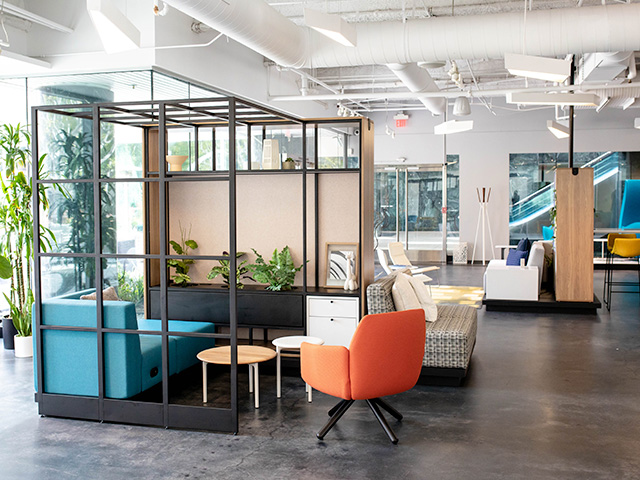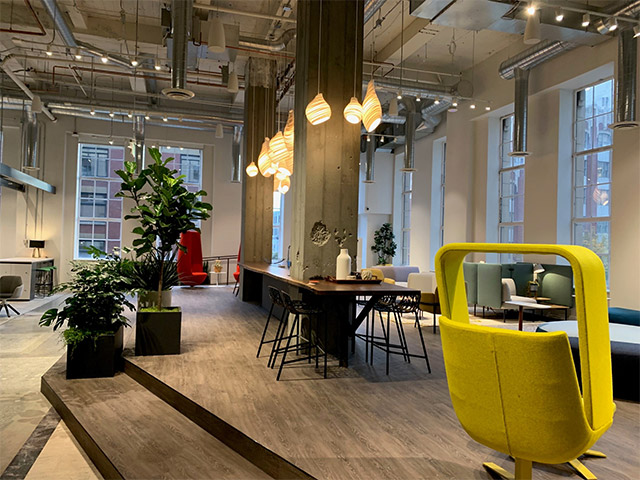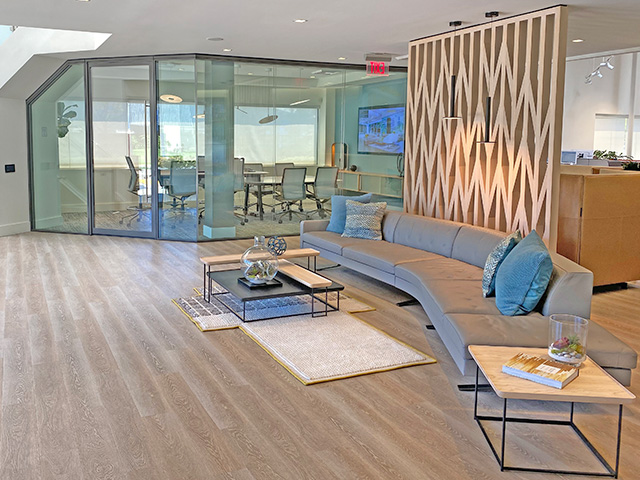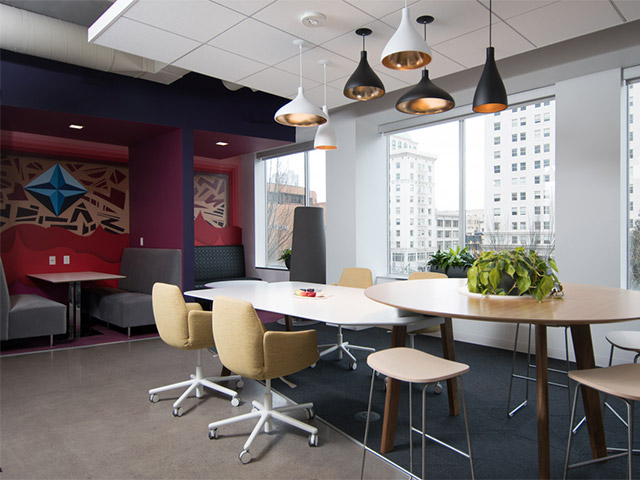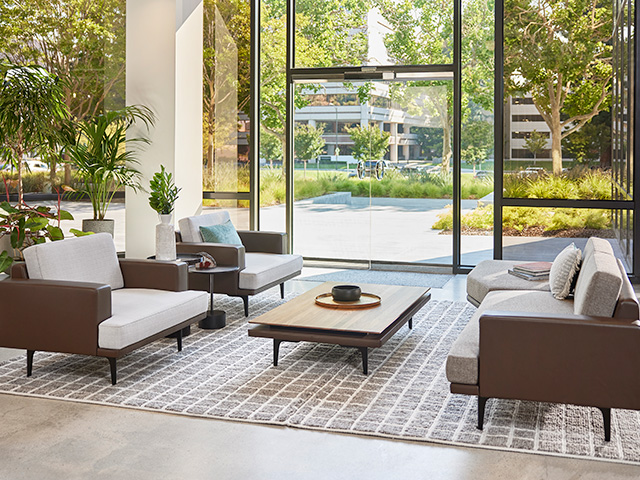by Emme Ratcliffe
Supporting cognitive function, physical and mental health, and psychological well-being are terms used to describe biophilia. When in a workplace, it is statistically proven that a biophilic design will improve one’s productivity and creativity. Especially during the pandemic of COVID-19, spaces that you spend a lot of your time in do impact you psychologically. When working remotely, you can sit outside and go on walks to surround yourself with nature, but now that organizations are beginning to return to the office, employees are not used to being at a desk all day. If you are returning your employees to the office, this is an essential and beneficial time to design the space around biophilic objects.
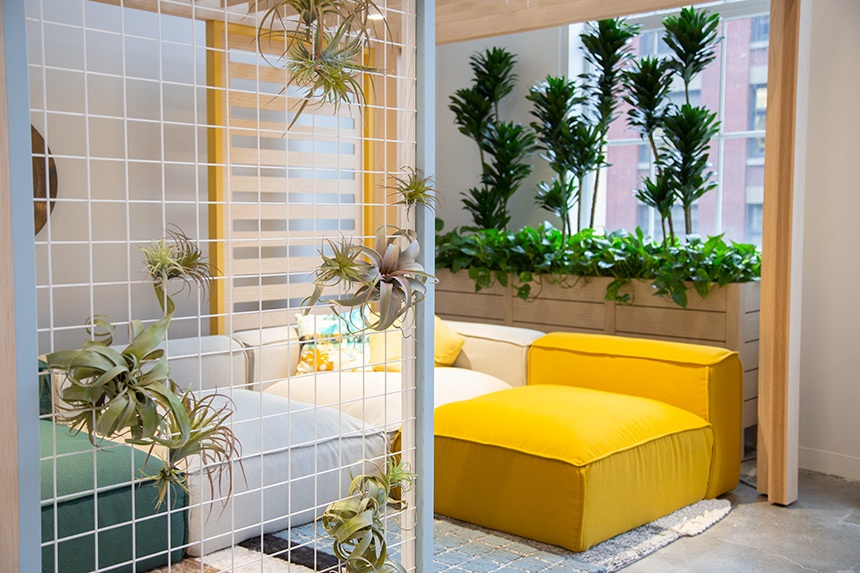
What is biophilia?
Biophilia is the term invented by Edward O. Wilson in his book The Biophilia Hypothesis to describe what he believes is humanity’s innate affinity for the natural world. By definition, biophilia is the innate human instinct to connect with nature and other living beings. But the term was first used by Erich Fromm, who surmised a psychological orientation to all that is alive and vital. Building upon this idea, Stephen Kellert, considered a pioneer of biophilic design, created a framework of principles that are used to this day. The word biophilia is originally from the word philia, which is Greek for ‘love of’ and bio meaning life or living things creating the word "love of life."

What is biophilic design?
Biophilic design is all things nature inside a building, from natural sunlight to living greenery and water such as ponds or fountains. An organization adding biophilic design to their offices proves to their employees that they care for their well-being physically and mentally, along with allowing them to feel comfortable within the spaces they work. Although art is not living, subtle hints of nature in art or colorful paintings or photos are another aspect of biophilic design. Although biophilic design involves many aspects, too much of it will be overwhelming and distracting, and it should only be accents or subtle hints of biophilia around a space to get the point across.
They involve direct and indirect experiences of nature.
- Direct experiences include light, air, water, plants, animals, natural landscapes and ecosystems, and weather.
- Indirect experiences include images of nature, natural materials, natural colors, mobility and wayfinding, cultural and ecological attachment to place, simulating natural light and air, naturalistic shapes and forms, evoking nature, information richness, age/change/the patina of time, natural geometries, and biomimicry.
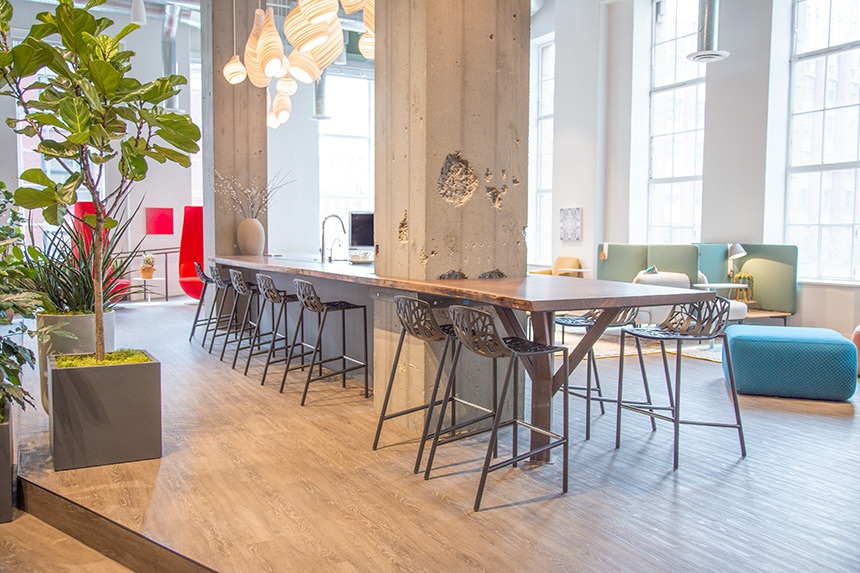
Benefits of biophilic designs
In the Harvard Business Review article, “Gazing at Nature Makes You More Productive: An Interview with Kate Lee,” University of Melbourne researcher Kate Lee said, “I’ve been drawing on attention restoration theory, which suggests that natural environments have benefits for people. Natural sunlight has many benefits for the human body such as, creating nutrients such as vitamin D, which is important for your blood cells, bones, and immune system. By adding big windows and skylights is essential for taking in minerals like phosphorus and calcium. Sounds, materials, textures, and patterns are all hand in hand with biophilic design and help positively stimulate one’s brain. Beyond attendance, something as simple as access to light makes employees happier. Often just 13-15 minutes of exposure to natural light is enough to trigger the release of endorphins or “happy hormones”—an effect that can counter the consequences of Seasonal Affective Disorder.
In addition, research from Fast Company indicates plants can reduce stress, help with focus, and even increase immunity. But what if your workplace doesn’t have access to outdoor workspaces? You can bring the outdoors in. Simply providing access to natural light, views of the outdoors, and fresh air offer profound improvements.

The Amazon Spheres in Seattle, Washington, are a great example of biophilic design as a space for employees and civilians to think and work differently surrounded by plants. See our collaboration with Haworth on the Coretrust Capital Partner project in downtown LA. Their new Workplace Innovation Labs (one in LA and another in Philadelphia) offer a showcase of work environments to demonstrate ideas that would resonate with customers and their people, both now and into the future.
FOR MORE INFORMATION, PLEASE CONTACT
Michelle Sample
marketing@peoplespace.com
